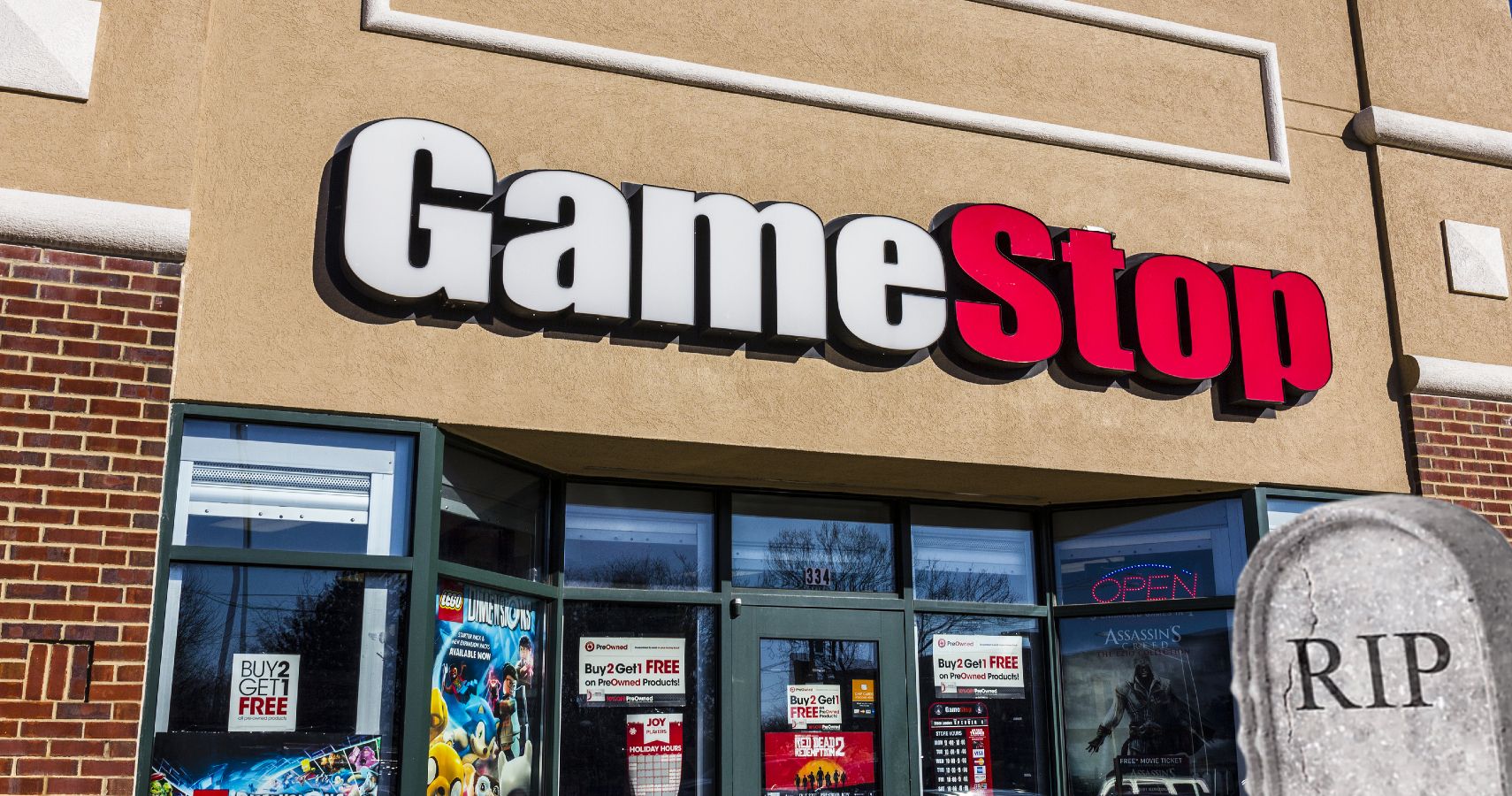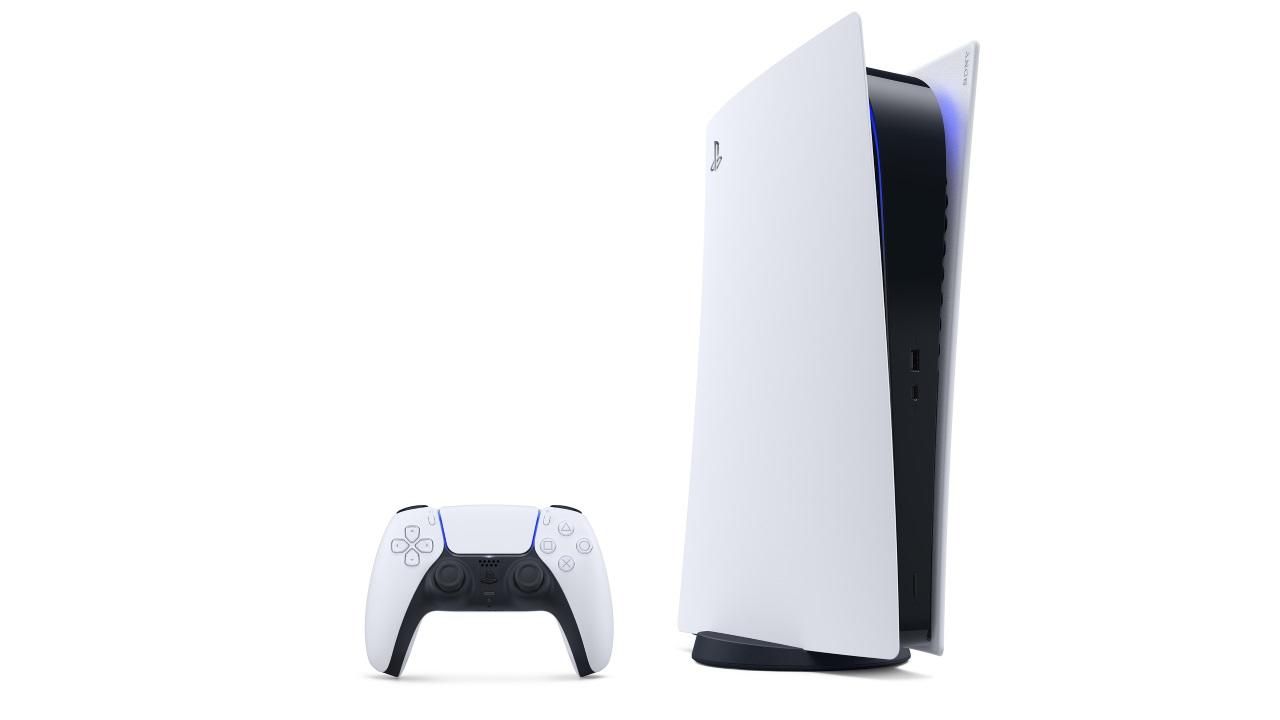For a brick and mortar retailer with the slogan "Power to the players," GameStop is ironically facing a crisis of ever-diminishing energy. The juice (and morale in its staff) have all but worn thin, and gamers? They've moved on to far more powerful, impactful, and sustainable enterprises that give them a reason to stay; a far more reasonable value than a $10 estimate on a used game bought new no less than a month prior.
Now GameStop finds itself in the very same shoes of its used games catalog and not even five dollars seems like a worthy appraisal. Break out those shovels, because although some believe video game stores aren't dying, GameStop most definitely is.
The Digitization of Next-Generation
Before even understanding the massive hole GameStop is currently in, one first must understand the now-evolving ecosystems in the video game industry. Two rather burgeoning aspects of gaming, both of which are still somewhat in their infancy, are now becoming more and more prevalent, especially on the cusp of a new generation of hardware. A pandemic-fueled quarantine-based contemporary atmosphere has likewise aided these soon-to-be thriving facets in the industry: digital-only platforms and cloud gaming.
It may sound rather unbelievable, due in large part to video game collectors, but physical games are going by the wayside. Microsoft's all-digital Xbox One S and its forthcoming next-gen Project Lockhart are proof of this, not to mention Sony's own diskless and cheaper PlayStation 5. The advent of cloud gaming has also aided in the death of brick and mortar stores as a whole, given that services like Stadia, GeForce Now, xCloud, PS Now, Vortex, and Shadow Tech all do away with disks, not to mention that hunk of plastic, metal, and gaudy wires. This relatively newly-born Wi-Fi-based gaming setup allows players to leap into most of their favorite games without the necessity of a download, more often than not all through the processing power of a user's phone, or another applicable device.
While it is still in its early years (looking at you Stadia), and the broadening of home Wi-Fi capabilities will most definitely need to be upgraded on an international scale, cloud gaming is very much alive and easily accessible. Whereas walking into any GameStop or even buying products on their website is filled with over-priced items, an experience which is only hampered by a hounding of unnecessary additional products no one ever wants (or needs). "But, what about the games not available on those services," I hear you ask. Two words: Game Pass.
A New Age of Nostalgic Playback
Rolling into the next-gen future, Microsoft is consistently proving itself a valiant competitor, not to Sony or even Nintendo as some might believe, but to (as Phil Spencer has previously mentioned) Amazon and Google. Why is that? Because the Xbox ecosystem isn't just a big black next-gen platform. Xbox content is available even on PC, believe it or not.
Herein lies the beauty of Game Pass, a subscription-based service that does away with old game disks and instead allows fans to download and play their favorite experiences as easily as pressing a button. The list is ever-evolving, and while the PC database may only be a little over 100-strong, there are hours-worth of insanely awesome content, like (at the time of writing) The Outer Worlds, Alan Wake, Rage 2, A Plague Tale, Alien Isolation, nearly every single Halo and Gears game, and so, so much more.
PlayStation Now, as previously mentioned among cloud services, works a bit differently in that players don't download the games, they are played via Wi-Fi. Thus, the service is often looked down upon, but the same principle is still there: nostalgia at a user's fingertips. Game Pass may do it better, but both systems are far more reliable and accessible than GameStop can ever possibly attempt to be, thereby making one of the only reasons for the store's continued existence now null and void. Would you rather spend five dollars a month on Game Pass for 100+ games, or buy one used physical copy at GameStop for at least twice that price? Even with clearance sales and a Pro membership, it simply doesn't make sense.
Ever-Depecriating Enterprise Value
In an article under Seeking Alpha titled "GameStop: On Its Way To Liquidation," the author kicks off the depressing news first and foremost:
"In the last five years, GameStop has lost more than 90% of its value and the company is currently in the middle of reorganizing itself. While the upcoming release of the next generation of consoles later this year might boost GameStop's sales, it's unlikely that the company's stock will be able to pick up momentum and appreciate from the current lows."
Staying open amid the pandemic helped to bring about an influx in sales through the help of releases, like Doom Eternal and Animal Crossing, but it didn't provide aid in the PR department. Though already well known, GameStop is a hive of scum and villainy now on its slow descent into self-destruction and total liquidation. Karma always catches up, and so too do years and years of failing to adapt to an ever-evolving industry, which had quickly moved into a more digital age. Now, GameStop is left with nothing more than a blanket of stores across the globe filled to the brim with games and collectibles that no one wants or really even needs.
The article presses the matter even further, claiming that GameStop's dwindling enterprise value, coupled with a negative price-earnings ratio, means the company is on a spiraling nose-dive into utter damnation. As mentioned previously, left with all but real estate, itself seemingly diminishing with 320 store closures recently and many more expected on the near-horizon, GameStop struggles for air as the soil continues to pile on top of it.
Next-Gen Platform Non-Profitization
So, will GameStop survive the coronavirus? It's not very likely. With ever-rising cases in many parts of the US, not to mention the threat of an even worse wave due in the colder Fall season, store-closures and quarantine could be yet another inevitability. Thus, while the online GameStop site may still be of some use to the company, it's highly doubtful that the storefront will be able to reclaim its prior footing through the aid of next-gen console and game sales. Liquidizing storefronts could potentially save the business, but like many quick fixes in its past, GameStop will most assuredly squander every available option.
Even collectibles, a product introduced into GameStop stores no less than three years prior to help kickstart its diminishing value, has not and most certainly will not help the company - although, a Johnny Silverhand replica arm display does look pretty sick. Still, like many of its long-time customers and even the reliable investors, GameStop is most assuredly headed out the door by year's end. And, like many of those still loyal to the brand and its atmosphere, I too will miss midnight game releases.
Yet, then again, my game will already be preloaded onto my system and immediately playable at the stroke of midnight. As for GameStop? It's headed to the grave.



